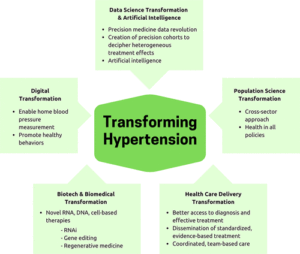First, some seemingly loose threads to unravel into a summary pattern and conclusions (which come at the bottom, not yet in text) :
THREAD 1: Since high blood pressure (discussing low elsewhere, with there are several similarities) with increased consensus is seen as preferably lifestyle related e.g. https://academic.oup.com/ajh/article/12/9/934/351716 &https://www.nature.com/articles/s41598-020-58685-1 this is also our scientific and clinical point of departure.
“Hypertension may develop due to a person’s lifestyle, medication regimen, underlying health status, genetic history, or a combination of these factors,” MEN (?)
“Non-modifiable risk factors include age, race, family history of high blood pressure or premature heart disease and other concomitant health conditions.”
“Nearly 72 million people in the United States have high blood pressure (HTN), and one in three U.S. adults have HTN. In addition, a third of people with HTN are unaware that they even have high blood pressure (BP), which is why HTN is often referred to as “the silent killer”. https://www.uspharmacist.com/article/exploring-the-link-between-blood-pressure-and-lifestyle
So one might ask: (i) If increased consensus considers many factors involved, why are evidence-based studies (motivational “treatment e.g. with certain drugs) often conducted when even non-academics (IA) realize that it must be the wrong approach – if one now assumes the individual’s causes, conditions and needs that most IA realize should vary within and between individuals over time – right?
Where is the answer to the above? How should high blood pressure be prevented and corrected? And who will do this job under what conditions?
THREAD 2: What kind of education for whom is hypertension in sweden characterized? Where is the reason why the history of education evolved into it, it is today?
1. Difficult to obtain information online, perhaps because the question is unnecessary because only leg. Doctors are responsible – based on the training they have received? If you search for “Who is responsible for ..” find nothing on the internet.
2. Text will …
Thread 3: What are the definition and level limits of hypertension?
See slightly different opinions, (as below thread 4!) e.g. https://www.internetmedicin.se/behandlingsoversikter/hypertoni/hypertoni-primar-essentiell/ and https://vardgivare.skane.se/vardriktlinjer/hjarta-och-karl/ako/hypertoni/
Thread 4: How to measure blood pressure? There are many different opinions here where I distinguish between two starting points:
You have hypertension = static or you do not assume dynamic behavior as healthy / healthy as well as non-fully functional starting point that is not taken into account / is interesting in terms of investigation and
Hypertension is a (usually) symptom condition that is dynamically investigated by examining the (!) reactions of blood pressure behavior under different conditions as well as how oneself (the individual/patient) can influence one’s blood pressure with one’s own strategies/behaviors or (if one does not know and have trained some, as many initiates do) is suggested to perform some simple strategies that usually produce results in most people (patients or not)
THREAD 5: (Perhaps the most dramatic thread) If drugs suppress the symptoms (hypertension) and the symptoms are signs of underlying dysfunctions that you “darken” does not occur then the development of the “Silent Killer” to “Not Very Killer” consequences is facilitated and begins to gain effective, strongly proper attachment”?
Thread 6: If hypertension education must fundamentally change to lead to the necessary change (according to the title) to take place – how should this revolution be designed so that clinicians can work, have family/leisure time at the same time?
Designed e.g. according to the manual “the patient who reasonably competently trained resource and co-worker in their own rehab” (based on my doctoral thesis 1986), i.e. group training patients based on a biopsychosocial toolbox tailored their tools as needed, conditions …. or similar – where medicines can be temporarily used as a “simdyna” see e.g. https://culturalmedicine.se/health-in-complex-world/hela-not-just-for-medicine-consideration/
Thread 7: Text is coming… (I hope ..)
Earlier title was = “Is the clinical field of hypertension an ingested area where infringement is informally (by well “cultivated developed corridor attitudes”) protected?” I think to hard to swallow, so I change while I want people to read further on, while I will show what can be done by “reasonable competent educated patients as resource and coworker really can do” – dependent on many factors including our clinical knowledge and practice within the filed of psychophysiological stress (behavioral) medicine, our basic clinical attitude and empathy, pedagogical approach, …
Hippocrates argue: “Our food and walking should be our medicine while Illnesses do not come upon us out of the blue. They are developed from small daily sins against Nature. When enough sins have accumulated, illnesses will suddenly appear” HELLA, not just to be considered in Medicine? | Cultural Medicine
I think most people, except those interested in pharmacology investments, will answer the question: “Given most patients suffer from high blood pressure depend on life style related biopsychosocial behaviors in a, to day, in spite of health promotion development, are challenged by commercial advertisement at most part of our life situation; is it lack of pills or life style related behaviors which should be the superior focus from health care systems? Life style related behaviors (biopsychosocial stress, absence of not constructive and presence of constructive food/drinks/.., lack of motions, biological incorrect breathing, absence of fruitful social relations, not enough qualitative good sleep, absence of smoking and drugs,.) can be, when individual adjusted (extern or intern) guidance, circumstances etc. is available! We can also, to most patients´ surprise and happiness, show how their dynamic (!) blood pressure changes dependent on their personal different conditions INCLUDING their ability to change “my will” consciously! Something many staff in the health care systems also do not know!
Any argument discussing urgent need of development in hypertension?
One example: “Future of Hypertension: The Need for Transformation”
https://www.ahajournals.org/doi/10.1161/HYPERTENSIONAHA.119.13437
Focus is on “.. precision medicine data revolution, driven by a convergence of biological, physical, engineering, computer, health, and social sciences, is setting the stage for a transformative leap toward data-driven, mechanism-based health and health care for each individual” but nothing is discussed about all available biopsychosocial behavioral medicine strategies, which – together with what discussed below – may develop a revolution in efficacy in education and self-treatment of hypertension, according to my clinical experiences!
 Figure. Hypertension: need for transformation. To control or eliminate hypertension, there is a need for system-wide transformation in research and clinical care as well as the convergence of disciplines. This figure highlights the 5 key areas where progress is needed to advance hypertension control and treatment. Achieving maximum benefit will require convergence of these areas.
Figure. Hypertension: need for transformation. To control or eliminate hypertension, there is a need for system-wide transformation in research and clinical care as well as the convergence of disciplines. This figure highlights the 5 key areas where progress is needed to advance hypertension control and treatment. Achieving maximum benefit will require convergence of these areas.
I doubt we should be satisfied with how hypertension is functioning today? When we work clinically, we try to document as well as possible to see how effective are treatments are. How it is with this in every day hypertension clinical work? Or, for that matter, we most life style related dysfunctions and problems? Furthermore, we have to ask us, how do patients continue in respect to their health development after treatment are finished – successful or not? We got hypertension patient referred who had used pharmacological substances over 30 years, some with not satisfied blood pressure levels. I hope not what I have met is the norm, but suspect it!
As hypertension usually is a destructive sign of underlaying dysfunctions, using pharmacological “treatment” is not needed if effective psychophysiological stress medicine interventions is used, it can be harmful while marking underlaying dysfunctions – a kind of “silent killer” as inflammation
http://content.time.com/time/covers/0,16641,20040223,00.html
And, hypertension is also called silent killer: “High Blood Pressure–Understanding the Silent Killer. https://www.fda.gov/drugs/special-features/high-blood-pressure-understanding-silent-killer
“Approximately 1 in 3, more than 100 million, American adults have high blood pressure. But only half of those people have their condition under control …”
Although, it can also me understood as a masked advertisement for pills (not perhaps the link above but others)
We may ask us: “Is the clinical field hypertension a masked ingested area where infringement is informally protected?” My answer is apparently although not expressed in clear terms. The consequences if psychophysiological behavioral medicine approaches would be the norm and not the exception would, if professional implemented, a huge positive effects both related to interventions as well as preventive, but not promote profits interests.
My clinical experiences during 35 years work with a biopsychosocial behavioral hypertension approach is that, given patient get adjusted education, they really become what the name of the manual is: “patient as reasonable competent resource and coworker in own rehab “while tailoring the tools in the biopsychosocial tool box. See e.g. http://culturalmedicine.se/health-in-complex-world/hela-not-just-for-medicine-consideration/
More text I coming … (2022-01-19 … a head)

